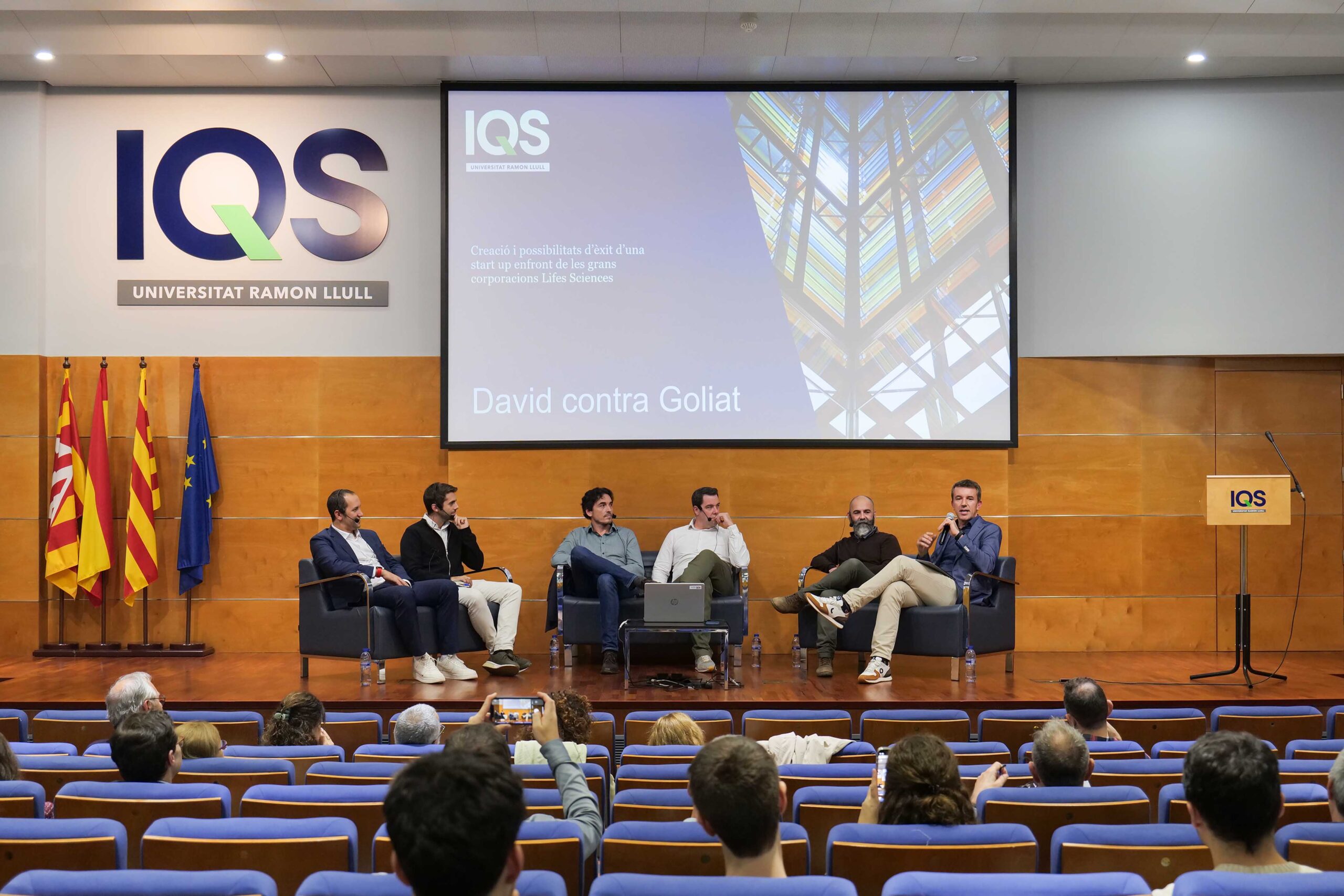On 6 November, IQS hosted the roundtable “David vs. Goliath: Creation and chances for success of a startup against large Life Sciences corporations.” The event brought together leading experts from the biotechnology and pharmaceutical sectors to discuss the challenges and opportunities facing startups in a global market dominated by large corporations.
The pharmaceutical industry is a fundamental driver of the European economy. According to the latest data available from the EFPIA (European Federation of Pharmaceutical Industries and Associations), production in this sector reached 323.95 billion euros, with a positive trade balance of 215 billion euros and an R&D investment of more than 42.5 billion euros. In Spain, this industry is largely concentrated in Barcelona. However, as the participants of the roundtable stated, a transformation of the sector is necessary to follow the example of other countries such as Denmark or the Netherlands.
Dr Salvador Borrós, Director of IQS, opened the event, followed by the roundtable, moderated by Marc Ramoneda, partner and CEO of Appliant, which revolved around three areas: the paradigm shift in the business model, the emotional aspects of entrepreneurship, and the ideal way to create a successful team.
To address these issues, the event featured participation by Miquel Costa, co-founder and CTO of Aglaris Cell and Aglaris Ltd; Albert Font, co-founder and CEO of Leanbio S.L.; Joan Perelló, founder and CEO of Sanifit Therapeutics (CSL Group); and Jordi Martorell, co-founder and CEO of Aortyx, all of whom have entrepreneurial experience in the sector. Guillem Laporta, a partner at Ysios Capital, completed the panel by contributing his knowledge from a financial point of view.
Regarding the paradigm shift in the sector, the speakers highlighted the role of startups as a constant source of innovation in contrast with the reduced dynamism experienced by certain large corporations. “Small companies are making progress in personalized therapies and medicine such as cell therapies, for example, something that isn’t usually the business model of large pharmaceutical companies,” Costa said.
In this sense, the participants insisted on the need for investments and support from established companies to continue moving forward. “It’s really difficult to gain an international reach without good grassroots financing, so we need to gain strength to take a step forward and eliminate the ‘gap’ between producing a drug and patients receiving it,” said Perelló.
Mr Laporta stressed the importance of considering economic and geopolitical factors such as inflation and wars when investing. “The financial industry goes in cycles. We can’t expect the situation to change from one day to the next, but, bit by bit, we’re getting closer to our European neighbours and that is where this paradigm shift begins to be tangible,” said the Ysios Capital partner optimistically.
Beyond financing, the debate on the business model brought to the table the key role of technology in the sector, an aspect that, at the moment, “is on the right track, but still needs more maturity; we must be patient so that it evolves enough and thus brings what we do closer to everyone,” Font said. Likewise, “it’s important to know the sector well, to know yourself well, and make yourself known, as well as contributing something different to the market,” Martorell added.
As representatives of the entrepreneurial ecosystem, the five participants agreed, based on their own experience, that it is not an easy task to manage the emotional side, although it is very positive and comforting. One of the key points to overcome it, they said, is to have a team that shares the same values and mission and to develop a sense of belonging, communication, and empathy, especially from a financial point of view.
Eduard Martí, managing partner of Codols Technology and deputy secretary of the IQS Alumni Board of Directors, wrapped up the event after the speakers closed the debate with a consensual conclusion: it is not a fight between David vs. Goliath, but a reasonable collaboration between startups and large corporations so patients come out on top.










